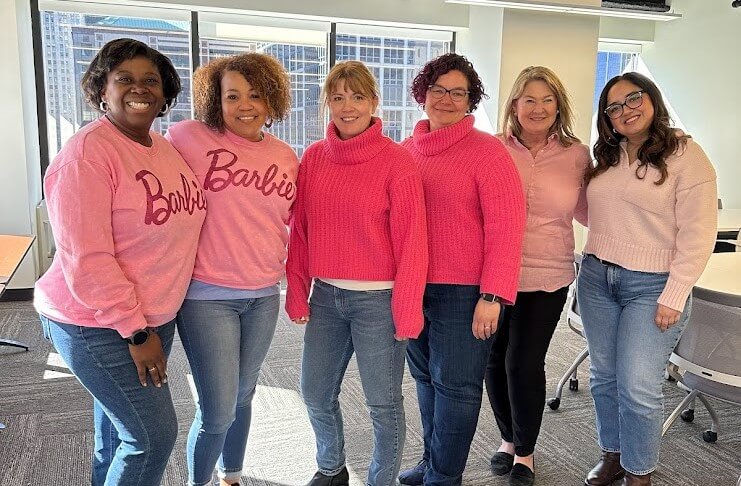Training and Support to Implement HFA
Our model-specific training is designed to equip all HFA staff to excel in their roles.
HFA Training is...
100% Virtual
HFA’s robust learning management system and excellent certified trainers make it easy for staff to obtain high-quality training. HFA’s model-specific core training features a combination of self-paced modules and live, small-group sessions.
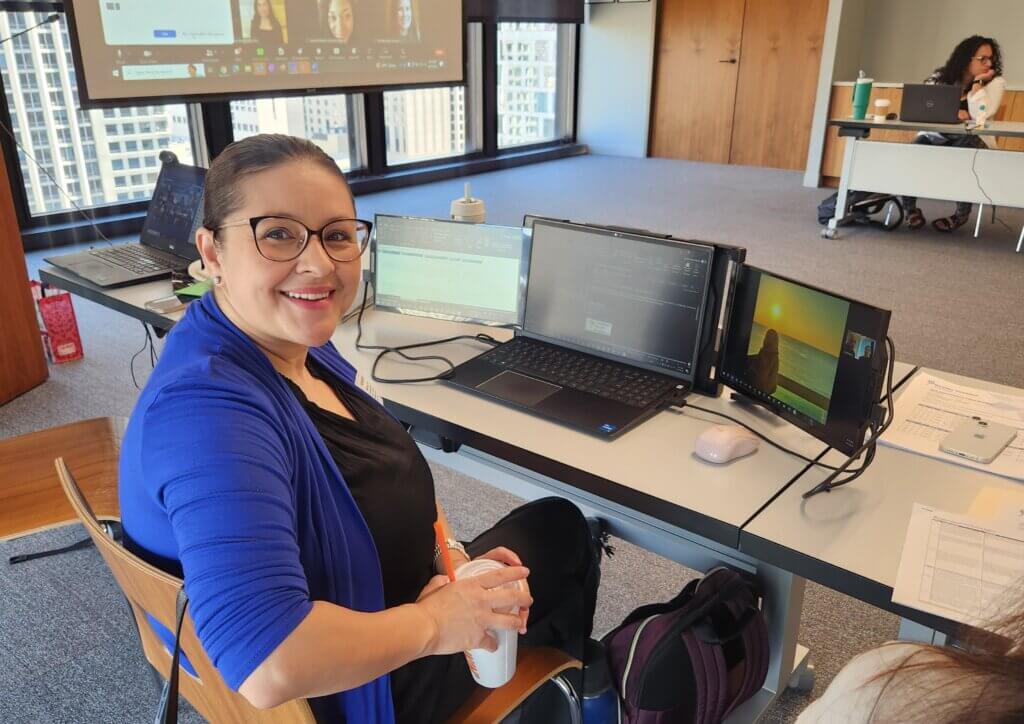
Relationship Based
We keep class sizes small, with 16 people total, to allow for deeper connections and shared learning with colleagues.
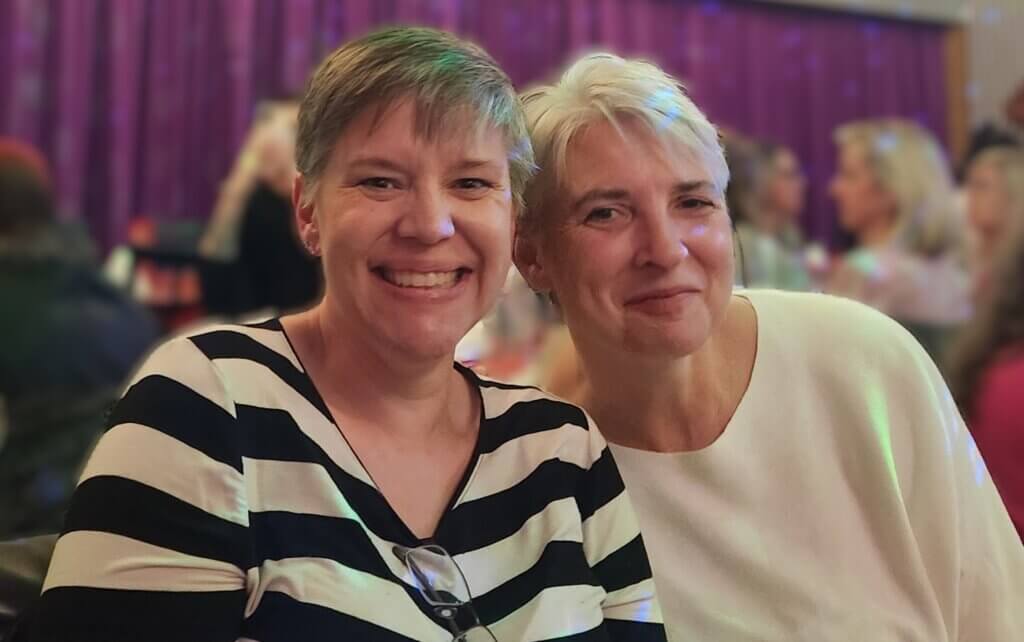
HFA's Core Training equips staff in every role
We thoughtfully designed our model-specific training to equip HFA staff—whether direct service providers, supervisors, or program managers—to succeed in their roles.
For direct service staff / home visitors
Starting out, direct service staff will receive two Core Trainings:
Foundations for Family Support (FFS) Core Training
The training outlines the specific duties of the home visitor in their role within HFA. Topics include but are not limited to trauma-informed practice; communication skills; assessing, addressing, and promoting positive parent-child relationships; creating a trusting alliance with families; goal setting; and strategies to enhance family functioning, address difficult situations, and ensure healthy childhood development.
Family Resilience and Opportunities for Growth (FROG) Scale Training
The FROG (Family Resilience and Opportunities for Growth) Scale is a structured tool for learning another person’s story, understanding the strengths and challenges that affect that person, and setting the stage for a family’s entry into what will be a supportive, meaningful relationship as a part of Healthy Families.
For supervisors
Supervisors will receive the same Core Training as direct service staff + Supervisor Core + FROG Supervisor Training
Supervisor Core: Relationships and Reflection
HFA Supervisor Core: Relationships and Reflection applies the foundational concepts of HFA that are introduced in Foundations for Family Support to the Supervisor role via the parallel process. Supervisors can expect to develop skills to support HFA Direct Service staff through reflective supervision and use of HFA Reflective Strategies in supervision and to understand the expectations and responsibilities of the Supervisor role as expressed in the HFA Best Practice Standards. This training begins with the HFA Advantage and the four components of attachment and applies them to the development of healthy supervisory relationships that build staff skills and hold space for staff feelings and reflections on the impact of this work. Supervisors will practice documentation, respond to supervisory scenarios, and have hands-on practice implementing skills related to supervision. By the end of the training, supervisors will develop plans for their continued growth in their role that they can implement over time.
FROG Supervisor
Supervisors will also spend a few days focused on supervising staff who use HFA’s FROG Scale.
For program managers
Program Managers are required to complete Foundations for Family Support Core Training + Supervisor Core + Implementation Training
Implementation Training
Implementation training is an opportunity to become intensely immersed in HFA, the expectations of the model, and the responsibilities of an HFA leader, all while developing relationships with national office staff and a network of support from other program manager colleagues throughout the country.
Stop-Gap Training helps you get started implementing quickly
Start implementing HFA immediately after affiliation, completing the full Core Training w/in 6 months.
HFA requires staff to attend HFA’s Core Training within the first six months of hire. This allows you some flexibility in terms of scheduling staff for training. Depending on your context, we also find that staff who attend HFA training very early after hire sometimes lack the context for what the work looks like, so they don’t take away as much from the training. New hires tend to do better if they have been at the site for 6 weeks or so and had an opportunity to shadow other workers, complete Stop-Gap training, and begin working with a few families. It makes the training content more applicable to their experience, and they are more likely to put the training into practice as a result.
So what is Stop-Gap Training?
If staff are not going to receive Core Training before serving families or supervising staff, they will need Stop-Gap Training. Stop-Gap Training gives staff the basics they need to be successful and allows them to receive hands-on experience doing the work before attending the full training.
Stop-Gap Training is a mix of formal training opportunities + on-site activities.
The on-site activities need to be supervised by someone who has received the training. This may mean teaming up with another local site in your area. We’ll help you navigate all of this – just know for now that this option allows you to start implementing HFA quickly after affiliation.
Want to learn more about HFA training?
 If you’re not yet affiliated, contact Diana, our Site Development Specialist. She’ll explain everything you need to know about training.
If you’re not yet affiliated, contact Diana, our Site Development Specialist. She’ll explain everything you need to know about training.
Help every step of the way with TA! (Technical Assistance)
All affiliates have opportunities to access Technical Assistance (TA) on a monthly, semi-monthly, or quarterly basis. New affiliates typically access TA every other week during their initial start-up period and less frequently thereafter. TA is our system of providing support to improve the implementation of the HFA model and the quality of services being provided. Together, we may do things such as thinking about how to support your team, reflecting on unique situations, staffing, and site concerns, discussing how to analyze data and develop strategies, and much more!
Our approach is strength-based
TA is part of the parallel process. It is collaborative, rather than directive, and it is strength-based. National Office Training & TA Specialists utilize the same values and reflective approach with sites that supervisors use with staff, and direct service staff use with families.
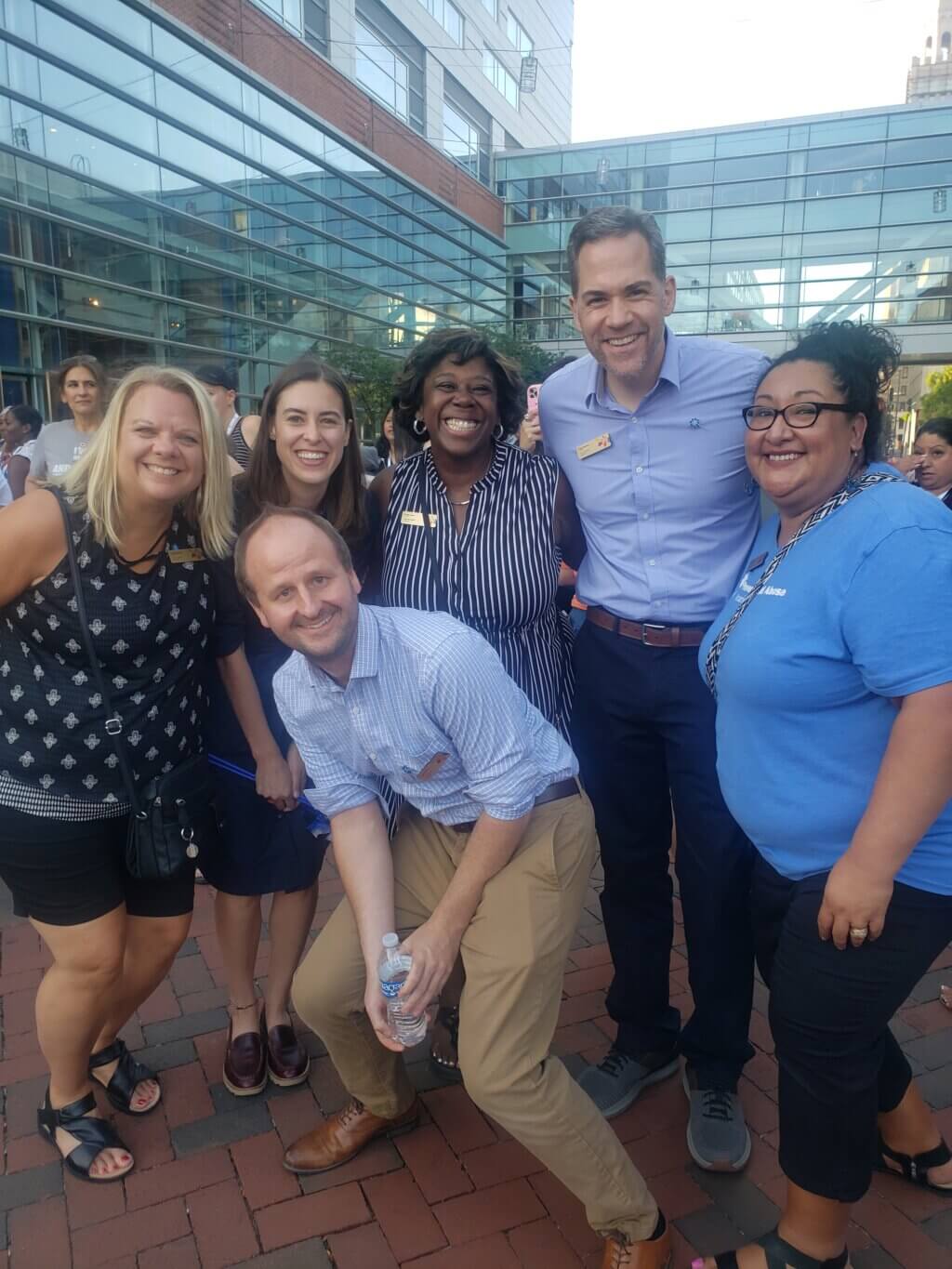
Focused on your specific needs and priorities
The focus of TA differs from training. The objective of TA is narrow and focused on the specific needs and priorities of a site. The objective of training is to implement the acquired knowledge and skills into practice, providing support throughout the process.
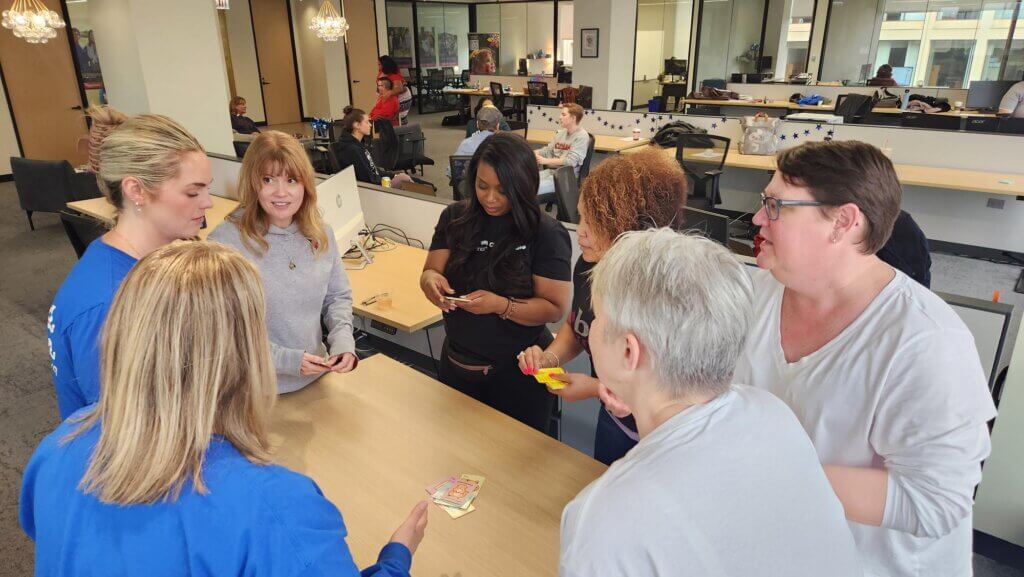
Acting in partnership with you
TA differs from Quality Assurance. The objective of TA is not to assess adherence to standards or policy, but to act in partnership with sites to support change, address gaps, barriers, and needs, and find potential solutions. QA gathers information about performance and quality, TA is the support and information that can lead to improvements and innovation. TA follows QA activities, supporting sites in addressing any areas they have identified to strengthen.
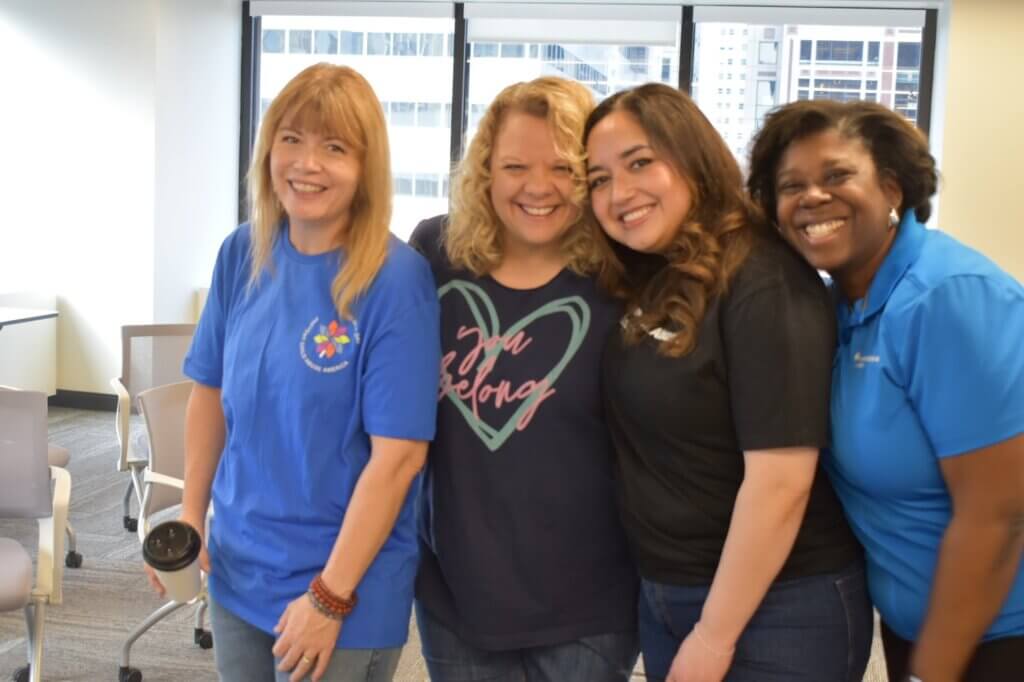
Alyssa Silver
HFA Program Supervisor
Having a TA Specialist with us to answer all of our questions during such a nerve-wracking time [preparing for accreditation] was amazing. Shayna walked us through all of our questions, gave us detailed responses both verbally and then again via email for our records, and then doubled back and checked in on us and how we were doing with implementing the information provided. Without a TA Specialist we would have been so lost at times! Having Shayna with us every step of the way was beyond comforting. She helped ease our worries, provided positive encouragement and feedback, and made us a better program! I have no doubt our accreditation went so smoothly because of it!
